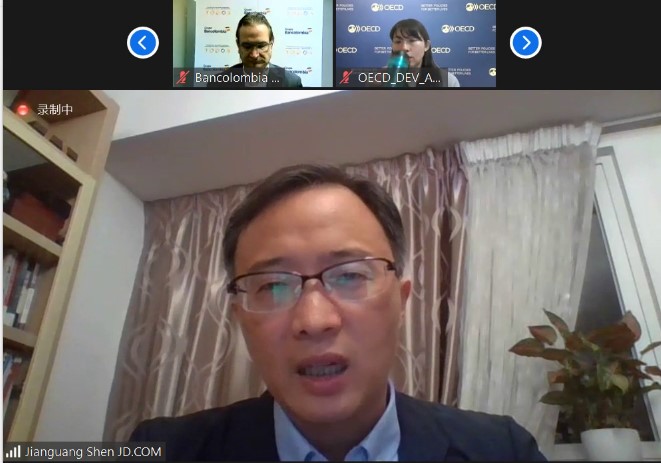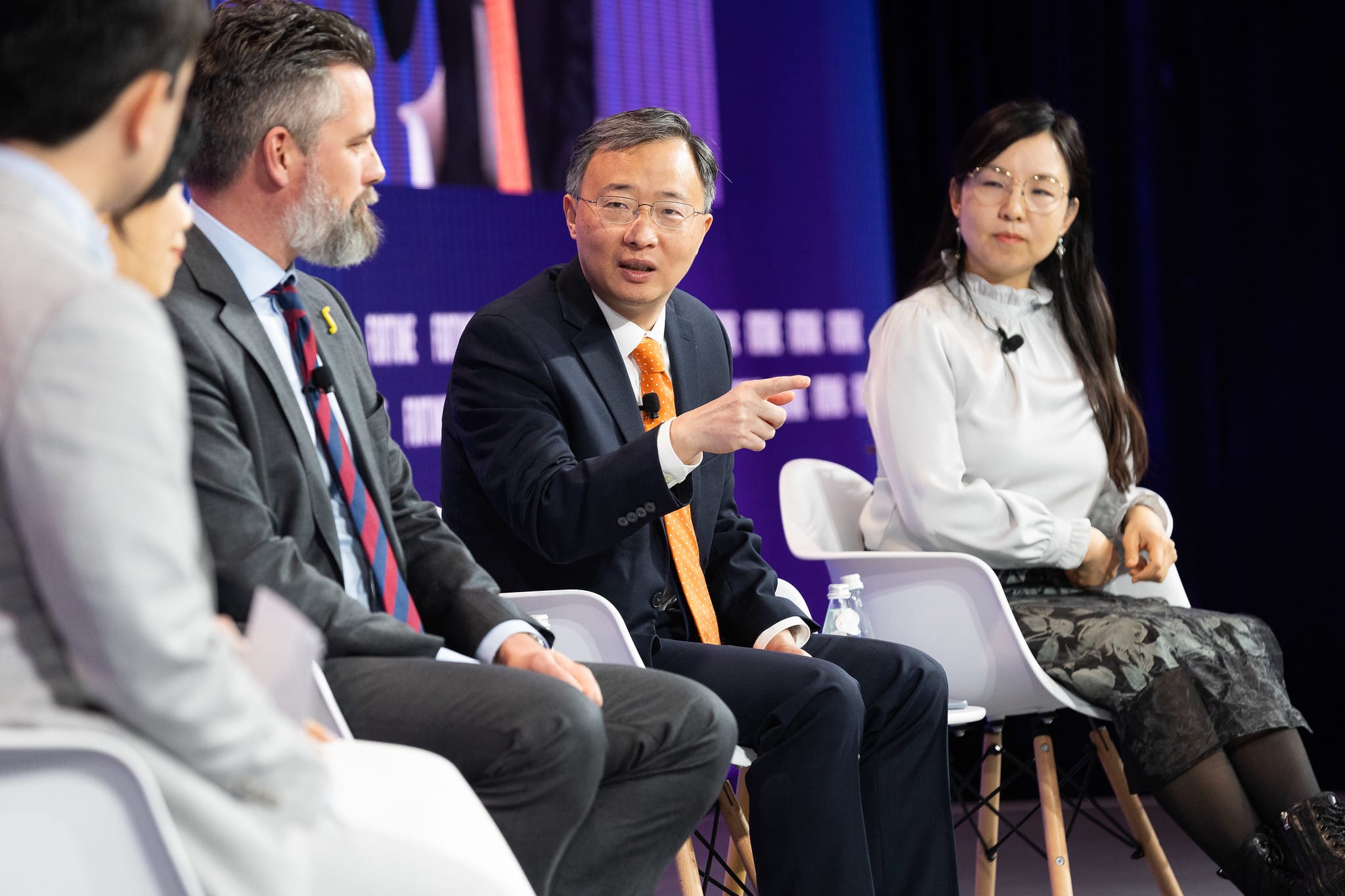May 31, 2021|
JDT Chief Economist: 2B and 2G as the Next Wave of China’s Digitalization
by Vivian Yang
A new wave of digital economy development is taking place in China in the post-COVID era with digital transformation services expanding from “to customer” to “to business” such as shops and factories, as well as “to government”, noted Dr. Jianguang Shen, chief economist of JD Technology during the OECD’s Emerging Market Network (EMnet)’s virtual meeting under the topic of “the challenge of digital transformation in emerging markets” on May 26.
Dr. Shen was invited as a guest speaker at the opening session of the organization’s working group discussion to share his thoughts on the progress of digital transformation in China.

Dr. Jianguang Shen, chief economist of JD Technology speaks at the opening session of OECD EMnet’s working group meeting
China’s decade-long investments in digital infrastructure such as the internet and 5G are paying off as these have allowed most companies to still engage in business during the pandemic, and the government has used digital infrastructure as an important tool to control the spread of COVID-19 in one quarter’s time, enabling the country’s economy to quickly pick up speed in the following quarters and achieve positive growth in 2020.
Shen shared his observation that most cities in China now offer free WiFi access in public areas, such as on the streets, on subways, in railway stations and more. He cited the mobile banking case to demonstrate the power of digital technology in supporting the government, business and households to deal with the difficult situation. Thanks to the wide application of fintech by banks, securities, insurance companies and more, “China’s financial sector achieved 8% growth in the first quarter of 2020 while overall economic activity fell 6.8%”.
With this experience, “from shops to manufacturers now, everyone knows that they have to embrace digitalization to be successful, using the internet to provide services online and maintaining reachable to their customers.” Shen also attributed this as a primary reason for the growing number of unicorn companies emerging in China.
Shen noted that the Chinese government is stepping up its effort in digital infrastructure investment after the pandemic outbreak by building data service centers, encouraging studies and applications of artificial intelligence, and supporting the development of companies and labs in relevant areas.
“The digital economy has been put at the center of China’s future development,” said Shen while stressing that “the government needs to strike a balance between using data as a productivity driver and protecting privacy.”
Juan Carlos Mora, president of Bancolombia, François Candelon, managing director & senior partner, global director of BCG Henderson Institute, and Maryleana Mendez, general secretary, ASIET also joined the panel discussion and shared their insights on the topic from their respective regional perspectives in Latin America, Europe and Africa.
All the speakers emphasized that public-private partnership is important to foster an ecosystem that can promote inclusive digitalization. In response to this point, Dr. Shen added that it’s important for the government to set up the principles and enable the proper use of data, then the private sector can contribute a lot in offering virus prevention services and beyond.



 JD Worldwide Enters Partnership with Ping An Bank
JD Worldwide Enters Partnership with Ping An Bank

